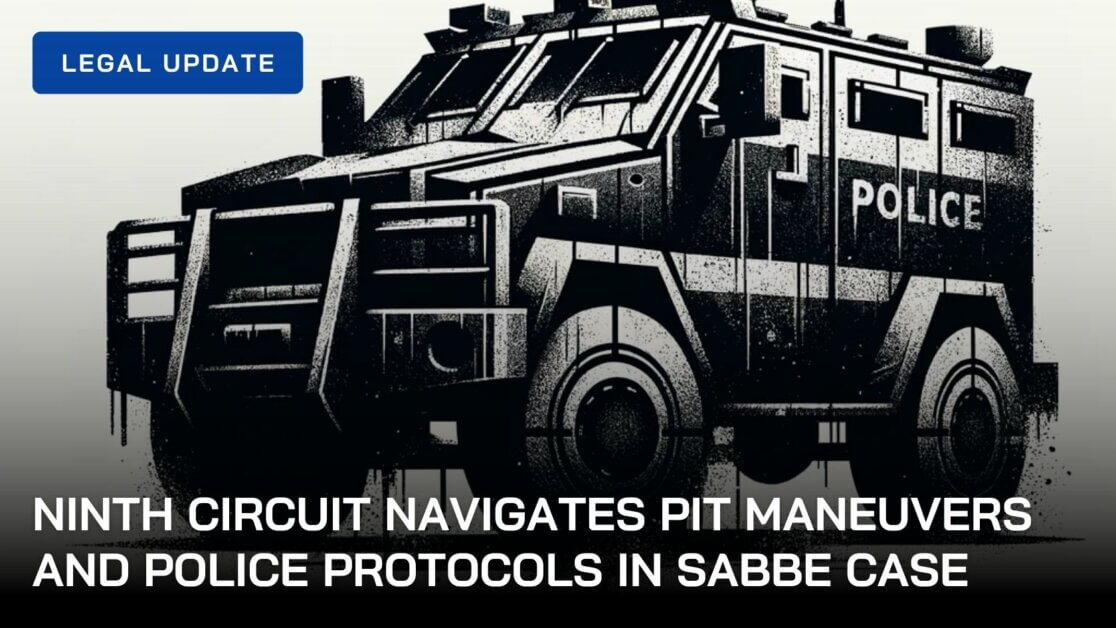Today’s case, United States v. Miles, is another traffic violation coming to us from the First Circuit. The trooper in today’s case has an excellent memory, and as a result he was able track down our suspect who was in possession of illegal drugs. The Court uses Whren v. United States, in their argument. In Whren, SCOTUS held that the reasonableness of a traffic stop under the Fourth Amendment is based on objective criteria and not the actual or subjective motivations of a law enforcement officer involved. Specifically, “as long as a traffic stop is warranted by objectively reasonable facts, a claim that the officer making the stop was acting in accordance with some hidden agenda will not ground a successful Fourth Amendment challenge.” You’ll see why this is important when we discuss the facts of today’s case.
FACTS
A Maine state trooper, Thomas Pappas, was patrolling the Maine Turnpike at around 10:30 p.m., when he saw a car traveling approximately thirty miles per hour in the southbound right-hand lane. The car moved into the left lane and, with Trooper Pappas following, proceeded in that lane for approximately two miles without passing any other vehicles. Trooper Pappas ran the license plate and learned that the car was registered to a woman named Wilkerson at a street address in Dorchester, Massachusetts. Trooper Pappas remembered that a few years earlier, he had participated in a drug arrest of a man named Wilkerson on that particular street.
While Trooper Pappas followed, the car passed a road sign reading “Keep Right Except to Pass.” Nonetheless, the car continued driving in the left-hand lane. Trooper Pappas then signaled the car to pull over to the side of the road. When Trooper Pappas approached the stopped car, he smelled marijuana and observed a bottle of champagne on the back seat. During the stop, Trooper Pappas discovered that the driver, Arthur Miles, had a suspended driver’s license, was in violation of probation conditions in Massachusetts, and was out on bail in Maine. Trooper Pappas handcuffed Miles and searched his car, discovering a quantity of unlawful drugs.
The government charged Miles with possession of a controlled substance with intent to distribute. Miles filed a motion to suppress the evidence seized from his car, arguing that Trooper Pappas lacked reasonable suspicion to conduct the traffic stop. The district court disagreed, holding that the stop was justified under the Fourth Amendment by Miles’s failure to obey a traffic control device (i.e., road sign) that directed motorists to “Keep Right Except to Pass.” Miles appealed.
FIRST CIRCUIT COURT OPINION
On appeal, Miles argued that Trooper Pappas’s real motivation for initiating the traffic stop was not for his failing to obey the Keep-Right-Except-to-Pass rule. Instead, Miles claimed that Trooper Pappas stopped him on a “mere hunch” that Miles was engaged in criminal activity based on the trooper’s knowledge that a person having the same last name as the registered owner of the car had previously been arrested for drug activity on the street where the registered owner lived.
To support his position, Miles relied, in part, on portions of Trooper Pappas’s testimony from the suppression hearing. For example, Trooper Pappas testified that: (1) he “intend[ed] to stop [Miles] even though [Miles] hadn’t reached” the sign that instructed drivers to “Keep Right Except to Pass;” and (2) even if Miles “had pulled back over into the right lane,” he would have stopped the car for “[t]he same thing.”
The First Circuit Court of Appeals rejected Miles’s argument. In this case, the court held that Trooper Pappas had a reasonable basis to believe that Miles had committed a traffic infraction. As a result, the court held that Trooper Pappas was entitled to conduct the traffic stop, regardless of any subjective motivation he possessed. As stated in Whren, “as long as a traffic stop is warranted by objectively reasonable facts, a claim that the officer making the stop was acting in accordance with some hidden agenda will not ground a successful Fourth Amendment challenge.”
TAKEAWAYS
Miles tried to use Trooper Pappas’s testimony against him, but to no avail. As you know if you have reasonable suspicion to pull someone over a small traffic violation, such as disobeying a traffic sign, can be used as a means to an end. Trooper Pappas’s memory served him well here and that reasonable suspicion was realized simply because Miles couldn’t read a traffic sign.
United States v. Miles, 2021 U.S. App. LEXIS 34122 (1st Cir. ME November 17, 2021)



